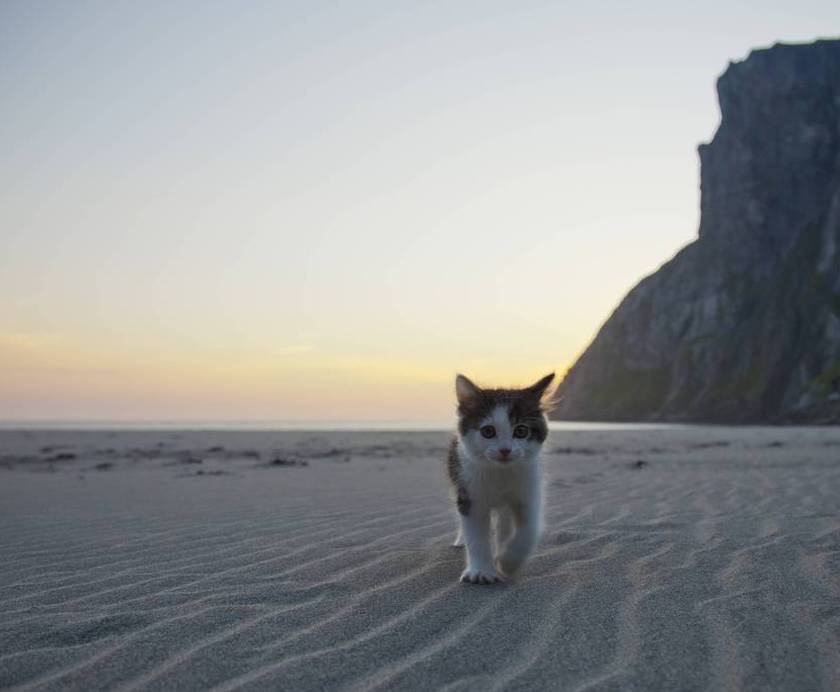Imagine you walk down the aisle and choose your favorite fish-flavored cat food; you pause to consider the price or the ingredients. Maybe it’s a Mars brand or a Nestle Purina brand. It doesn’t really matter. Because the story I’m going to tell you will forever change how you look at the fish-flavored cat food.
The brightly colored, little tin of fish-flavored cat food you hold in your hand is tied to slavery: Human slavery, where men are held as prisoners on ships, sometimes for years at a time, where they toil without food or rest to capture the fish that goes into pet food.
The New York Times released a shocking report this week, ‘Sea Slaves’: The Human Misery That Feeds Pets and Livestock, documenting in graphic detail the lives of men held captive on fishing ships in the South China Sea to catch fish, most of which ends up in pet food.
Men, shackled and beaten, starved, and fed a steady diet of amphetamines, are forced to work 18, sometimes 20, hours a day catching fish:
“In interviews, those who fled recounted horrific violence: the sick cast overboard, the defiant beheaded, the insubordinate sealed for days below deck in a dark, fetid fishing hold…
… [Where] Often they are beaten for the smallest transgressions, like stitching a torn net too slowly or mistakenly placing a mackerel into a bucket for herring.”
Some days the men are only allowed 1 hour of rest. And when drinking water runs low, they are forced to drink from the putrid-tasting ice that melts in the bottom of barrels of fish.
Some men, so desperate to escape, jump overboard and drown, their only means of ending a life of unimaginable hardship and cruelty.
Much of this cruel catch comes from Thailand and is sold to the United States for canned cat, dog food, or feed for poultry, pigs, and farm-raised fish Americans consume.
According to the Times, in the past year,
“…more than 28 million pounds of seafood-based cat and dog food for some of the top brands sold in America including Iams, Meow Mix and Fancy Feast, according to United States Customs documents.”
Even though there is pressure from American consumers for more accountability in seafood companies’ supply chains to ensure against illegal fishing and contaminated or counterfeit fish,
“…virtually no attention has focused on the labor that supplies the seafood that people eat, much less the fish that is fed to animals.”
Nestlé-Purina, which makes pet food brands including Fancy Feast and Purina, said that the company is “working hard” to ensure that forced labor is not used to produce its pet food. But, it adds that it is difficult because the fish it purchases comes from multiple ports and fishing vessels operating in international waters.
Mars Inc., which holds roughly a quarter of the world’s market in pet food, claims they have already replaced fishmeal in some of its pet food and promises that by 2020, the company plans to use only “non-threatened fish caught legally or raised on farms and certified by third-party auditors as not being linked to forced labor.”
Mars admitted that the fishing industry has real traceability issues and struggles to ensure proper working conditions, mainly because Mars does not purchase fish directly from docks but further up the supply chain.
Further up the supply chain is a man on a ship somewhere in the South China Sea who, around his bruised neck, wears a rusty metal collar padlocked to a three-foot chain looped to an anchor post and whispers, “Please help me.”
We must make the connection between our choices as consumers and the consequences it has on men’s lives, a world apart from us. If this story tells us anything, it is that this is why traceability is so critical. Without it, we are shopping blindly, oblivious to the reality of a cruel world where men toil as slaves so we can have cheap cat food.
Until we have complete transparency from pet food manufacturers, you should assume that the brightly colored cute little tin of cat food you hold in your hand is directly responsible for perpetuating horrific human rights abuses. Unfortunately, this is the tragic truth behind fish-flavored pet food that we can no longer pretend does not exist.
Source: ‘Sea Slaves’: The Human Misery That Feeds Pets and Livestock; NYT


Comments (7) Write a comment